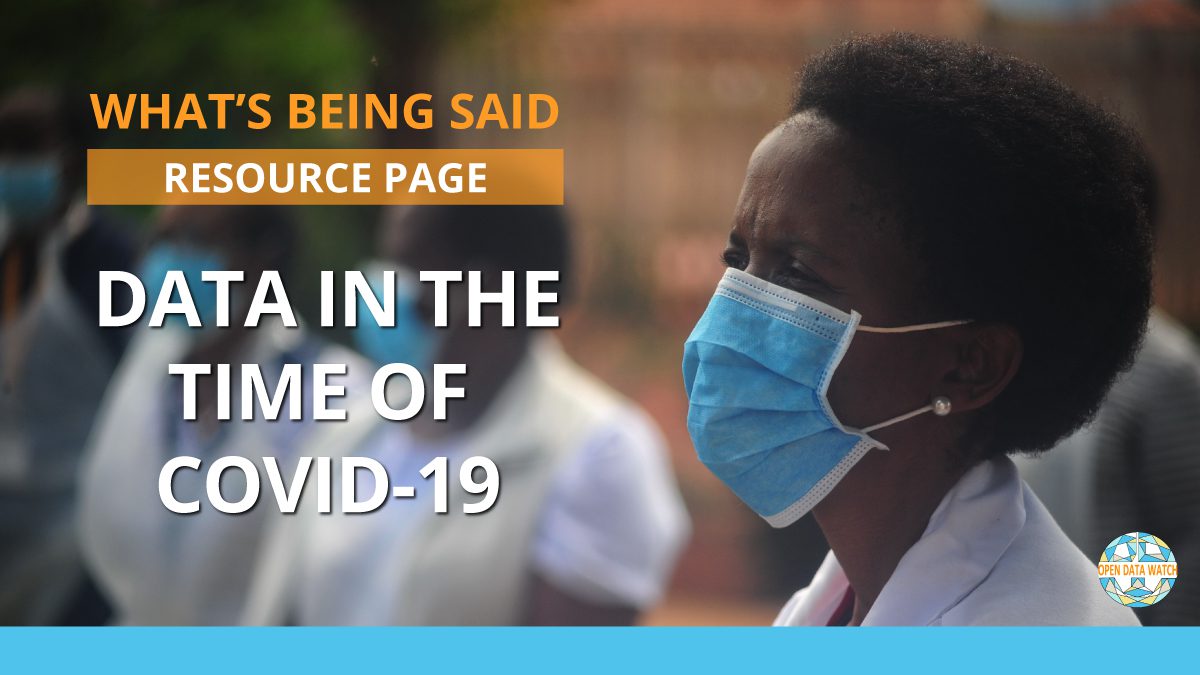Survey ethics involve ethical principles and guidelines to ensure the protection and respect of survey participants’ rights and well-being while gathering data. Proper implementation of survey ethics maintains the integrity and validity of the survey findings, enhancing the credibility and trustworthiness of the research.
Understanding Survey Ethics
Discover the essential principles of survey ethics to ensure ethical research practices and reliable data collection. Gain insight into best practices for conducting surveys that protect participants’ rights and maintain the integrity of your research.
Definition And Principles Of Survey Ethics:
Survey ethics refer to the moral principles and guidelines that researchers follow when conducting surveys to ensure the responsible and ethical gathering of data. By adhering to these principles, researchers can ensure the validity, reliability, and trustworthiness of their findings.
Here are some key points to understand about survey ethics:
- Informed Consent: Researchers must obtain informed consent from participants before they engage in the survey. This means providing clear information about the purpose of the survey, what kind of data will be collected, how the data will be used, and any potential risks or benefits involved. Participants should have the freedom to choose whether or not to participate without any pressure or coercion.
- Anonymity and Confidentiality: Protecting the privacy of survey respondents is of utmost importance. Researchers should ensure that participant responses remain confidential and that individual information cannot be linked to specific responses. Anonymity should be guaranteed, meaning that even the researchers themselves do not have access to identifying information.
- Voluntary Participation: Participants should never be forced or compelled to take part in a survey. It is crucial to respect their autonomy and right to decline participation at any time without consequences. Researchers should avoid offering incentives that may unduly influence participation.
- Privacy and Data Security: Researchers are responsible for securely storing and protecting the data collected during the survey. Adequate measures must be taken to safeguard against unauthorized access, use, or disclosure of participants’ personal information.
Implications Of Unethical Data Gathering:
Unethical data gathering practices can have far-reaching consequences not only for participants but also for the credibility and reputation of researchers and organizations. Here are some potential implications of unethical data gathering:
- Misrepresentation of Findings: If researchers engage in unethical practices such as manipulation or falsification of data, the findings derived from such data will be misleading. This can lead to a distorted understanding of the research topic, undermining the integrity of the entire study.
- Breach of Trust: Unethical data gathering breaches the trust that participants place in researchers. This can have a detrimental impact on future research endeavors as participants may be reluctant to participate or provide honest responses due to concerns about the misuse or mishandling of their data.
- Harm to Participants: Unethical data gathering can potentially cause harm to participants. This may involve invasion of privacy, emotional distress, or exposure to sensitive information without proper consent or protection.
- Legal Consequences: Engaging in unethical data gathering practices may result in legal repercussions. Violating privacy laws or regulations can lead to lawsuits, fines, and damage to the reputations of both researchers and organizations involved.
- Damage to Research Community: Unethical practices not only harm individual researchers but also damage the overall reputation and credibility of the research community. This undermines public trust in research and can have long-term negative effects on scientific advancement.
By understanding survey ethics and adhering to ethical principles, researchers can ensure the responsible and ethical gathering of data, protecting the rights and well-being of participants, and upholding the integrity of their research.
Best Practices For Ethical Data Gathering
Discover the best practices for ethical data gathering in surveys, ensuring the collection of data is done with integrity and in accordance with ethical standards. Understand the importance of obtaining informed consent, maintaining confidentiality, and respecting participants’ privacy throughout the survey process.
When conducting surveys, it is crucial to adhere to ethical guidelines in order to ensure the integrity of the data collected and to protect the well-being of participants. Here are some best practices to follow:
Informed Consent And Voluntary Participation:
- Obtain informed consent from participants before collecting any data.
- Clearly explain the purpose and nature of the survey, as well as how the data will be used.
- Highlight that participation is voluntary and participants have the right to withdraw at any time.
- Provide contact information for any questions or concerns.
Anonymity And Confidentiality Of Participant Data:
- Assure participants that their responses will remain anonymous and confidential.
- Remove any identifying information that could link responses back to participants.
- Store participant data securely to prevent unauthorized access.
- Use encryption and access controls when transferring or storing data.
Minimizing Potential Harm And Ensuring Participant Well-Being:
- Ensure the survey content and questions are respectful and non-offensive.
- Avoid sensitive or triggering topics unless they are central to the research.
- Offer support resources or referrals at the end of the survey for participants who may require assistance.
- Monitor participant responses for signs of distress and provide appropriate assistance if needed.
By following these best practices, you can promote ethical data gathering and maintain the trust and cooperation of your survey participants. Remember, their well-being and confidentiality should always be the top priority.
Ensuring Data Integrity And Quality
The ethical conduct of surveys involves ensuring the data’s integrity and quality is maintained throughout the research process. By upholding survey ethics, researchers can collect reliable data that accurately represents the population being studied.
In the realm of survey ethics, ensuring data integrity and quality is of utmost importance. To maintain the credibility and accuracy of survey results, certain practices must be followed. Let’s explore two crucial aspects: validating and verifying survey instruments and transparency in data collection and analysis.
Validating And Verifying Survey Instruments
Maintaining the reliability and validity of survey instruments is critical to obtain accurate data. Here are some essential steps to validate and verify survey instruments:
- Pilot testing: Conduct a small-scale trial run of the survey to identify any flaws or ambiguities in the questions.
- Expert review: Seek feedback from professionals in the field to ensure that the survey measures what it intends to measure.
- Cognitive interviews: Conduct interviews with potential survey respondents to gauge their understanding of the questions and identify any areas of confusion.
- Pretesting: Administer the survey to a small sample group to analyze the reliability and consistency of responses.
Transparency In Data Collection And Analysis
To maintain integrity and ensure the quality of survey data, transparency throughout the data collection and analysis process is crucial. Here are some measures to promote transparency:
- Informed consent: Obtain informed consent from survey participants, ensuring they are fully aware of the purpose, potential risks, and how their data will be used.
- Anonymity and confidentiality: Assure respondents that their identity will be protected, and their responses will remain confidential.
- Clear instructions: Provide clear and concise instructions to survey participants, reducing the chances of misinterpretation or bias.
- Data management: Adhere to established protocols for data storage, handling, and privacy to safeguard the integrity of the data.
- Reporting standards: Follow transparent reporting guidelines, accurately documenting all steps taken during data collection and analysis.
By validating and verifying survey instruments and practicing transparency in data collection and analysis, researchers can uphold the integrity and quality of survey data. These ethical practices not only ensure reliable results but also foster trust between researchers and survey participants, contributing to the advancement of knowledge in various fields.

Credit: www.hipeople.io
Ethical Considerations In Survey Design
With survey ethics in mind, it is crucial to consider the ethical implications when designing a survey. A careful approach must be taken to ensure the ethical treatment of participants, data privacy, and the accuracy of the results.
Surveys are an essential tool for gathering valuable insights and data. However, it’s crucial to uphold ethical standards when designing surveys to ensure accuracy, fairness, and inclusivity. Here are some ethical considerations to keep in mind during the survey design process:
Avoiding Biased Or Leading Questions:
- Use neutral language: Avoid using leading words or phrases that could sway participants’ responses.
- Eliminate double-barreled questions: Ask one question at a time to avoid confusion and collect accurate responses.
- Be cautious of loaded statements: Steer clear of statements that might generate a specific response or introduce biases.
Ensuring Cultural Sensitivity And Inclusivity:
- Use inclusive language: Make sure your questions are respectful and inclusive of diverse cultural backgrounds and identities.
- Consider cultural context: Take cultural nuances into account to avoid potentially offensive or insensitive questions.
- Test with diverse groups: Conduct pilot tests with individuals from diverse backgrounds to identify any potential biases or issues.
By following these ethical considerations, you can design surveys that gather accurate and unbiased data while respecting the cultural diversity and inclusivity of your target audience. Remember, ethical survey design leads to reliable and valuable insights.
Ethical Issues In Survey Administration
Survey ethics are a crucial consideration in survey administration, encompassing issues such as informed consent, privacy, and confidentiality. Ensuring ethical practices promote trust and accuracy in data collection.
Properly identifying and targeting participants:
- Clearly define the target population: It is essential to accurately identify the specific group of individuals that the survey intends to gather data from. A well-defined target population ensures the survey results are representative and meaningful.
- Obtain informed consent: Prior to participants taking part in the survey, it is crucial to provide them with all necessary information about the purpose, duration, confidentiality, and potential risks involved. Participants should have the option to participate voluntarily and should explicitly provide their consent.
- Protect participant anonymity and confidentiality: Safeguarding participant identities and responses is paramount. Survey administrators must ensure that responses gathered are kept anonymous and confidential, following best practices like maintaining data encryption and secure storage.
Avoiding undue influence or coercion:
- Maintain neutrality and objectivity: Survey administrators must refrain from biasing participants by introducing personal opinions or leading questions that could influence their responses. Objectivity is key to gathering reliable and unbiased data.
- Avoid using manipulative language: Language plays a significant role in how participants interpret and respond to survey questions. Surveys should be designed using clear and neutral language, ensuring that questions do not manipulate or coerce participants into specific responses.
- Minimize potential conflicts of interest: Survey administrators should disclose any potential conflicts of interest that may influence the survey results. Transparency helps maintain the integrity and credibility of the survey.
Remember, ethical survey administration ensures the survey results accurately reflect participants’ perspectives while respecting their rights and privacy. Following these ethical guidelines establishes trust and enhances the effectiveness of survey research.
Ethical Responsibilities Of Researchers
Researchers have ethical responsibilities when conducting surveys, including obtaining informed consent, protecting participant confidentiality, ensuring data accuracy, and avoiding conflicts of interest. Following these guidelines is crucial in maintaining the integrity of survey ethics.
Researchers have certain ethical responsibilities when conducting surveys to ensure transparency, accuracy, and trustworthiness of their findings. Let’s delve into two key aspects of these ethical responsibilities: disclosing conflicts of interest and properly using and reporting survey results.
Disclosing Conflicts Of Interest
It is crucial for researchers to disclose any conflicts of interest that may arise during the survey process. This helps maintain the integrity and credibility of the research. Here are some key points to consider:
- Transparency: Clearly state any personal or financial interests that could potentially influence the research process or outcomes.
- Disclosure statement: Include a disclosure statement in the research report, providing full details of any conflicts of interest.
- Impartiality: Strive to remain objective and unbiased throughout the research process, disclosing any potential biases that could arise.
Properly Using And Reporting Survey Results
Accurate and responsible reporting of survey results is equally important. To ensure credibility and reliability, researchers should adhere to the following practices:
- Statistical accuracy: Use appropriate statistical techniques to analyze survey data accurately, ensuring that findings are not misrepresented or manipulated.
- Clear representation: Present survey results in a manner that is easy for readers to understand, using graphs, charts, and concise explanations.
- Avoiding generalizations: Be cautious about making broad or sweeping generalizations based on limited survey responses. Clearly define the limitations of the research and acknowledge any potential biases.
By adhering to these ethical responsibilities, researchers can uphold the trust and confidence of both participants and readers of their surveys. Maintaining transparency, impartiality, and accuracy throughout the research process is essential to maintain the integrity of survey findings.
Frequently Asked Questions Of Survey Ethics
What Ethics Must Be Followed In Surveys?
To ensure ethical practices in surveys, follow these guidelines: 1. Keep sentences concise, with a maximum of 20 words each. 2. Maintain SEO friendly, plagiarism-free writing that is easy to understand and in active voice. 3. Avoid starting sentences with specific phrases and refrain from using passive voice.
4. Write content that passes AI writing detection and resonates with a human touch.
What Is Survey Ethics?
Survey ethics refers to the principles and guidelines used to ensure ethical behavior during the survey process.
How Do You Ensure An Ethical Survey?
To ensure ethical surveys: 1. Obtain informed consent from participants. 2. Keep responses anonymous and confidential. 3. Avoid leading or biased questions. 4. Provide clear instructions and avoid deceptive practices.
Why Is Ethics Important In Surveying?
Ethics is important in surveying because it ensures integrity, accuracy, and fairness in collecting and analyzing data.
Conclusion
Overall, maintaining ethical practices is crucial in the field of survey research. It not only ensures the integrity and validity of the data collected but also upholds the rights and privacy of respondents. By following the principles of informed consent, confidentiality, and anonymity, survey researchers can build trust with participants and enhance the credibility of their findings.
Additionally, adhering to ethical guidelines helps to avoid potential biases and misleading results. As technology continues to evolve, it is important to stay updated on the latest ethical considerations in survey research, especially when collecting data online or through mobile devices.
Collaborating with ethics review boards and seeking guidance from professional organizations can further support researchers in navigating the complex ethical landscape. Ultimately, by prioritizing ethical practices, survey researchers can contribute to the advancement of knowledge while ensuring the well-being and protection of individuals involved in their studies.
- Survey Service : Boost Your Business with Dynamic Data - January 9, 2024
- Survey Completion: Unlocking Insights and Enhancing Decision-Making - January 9, 2024
- Attitude Survey: Uncover the Hidden Insights - January 9, 2024


